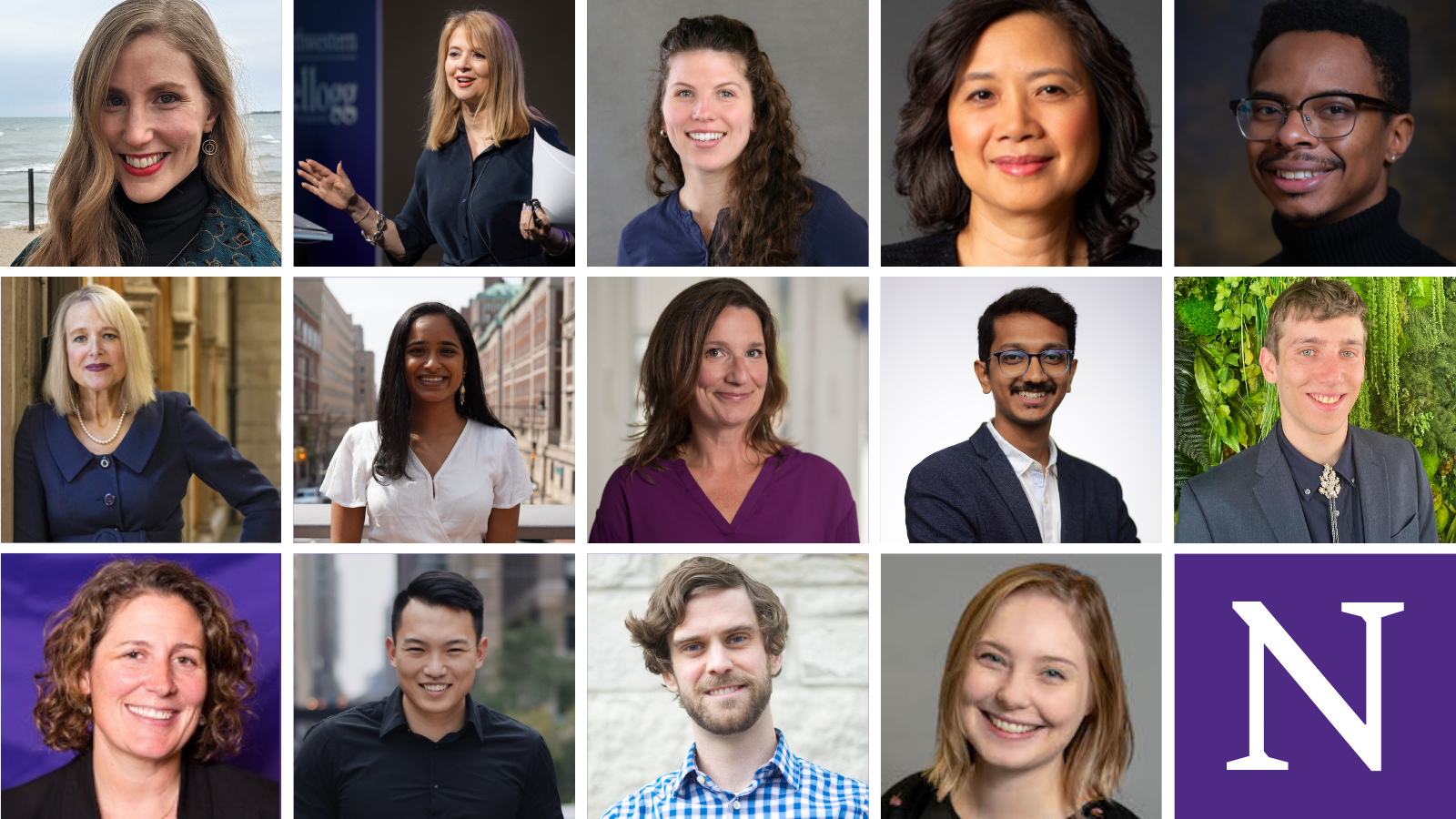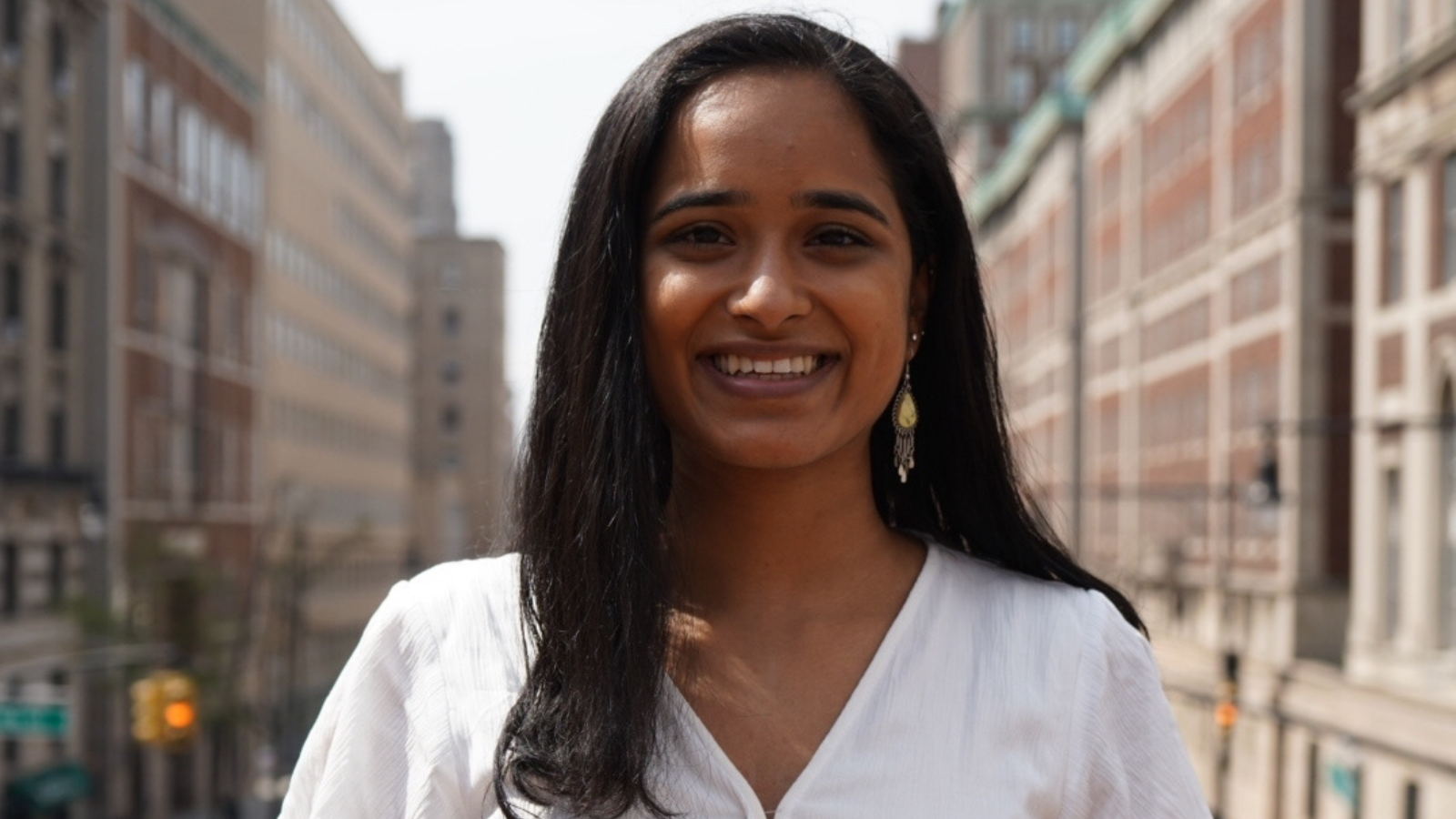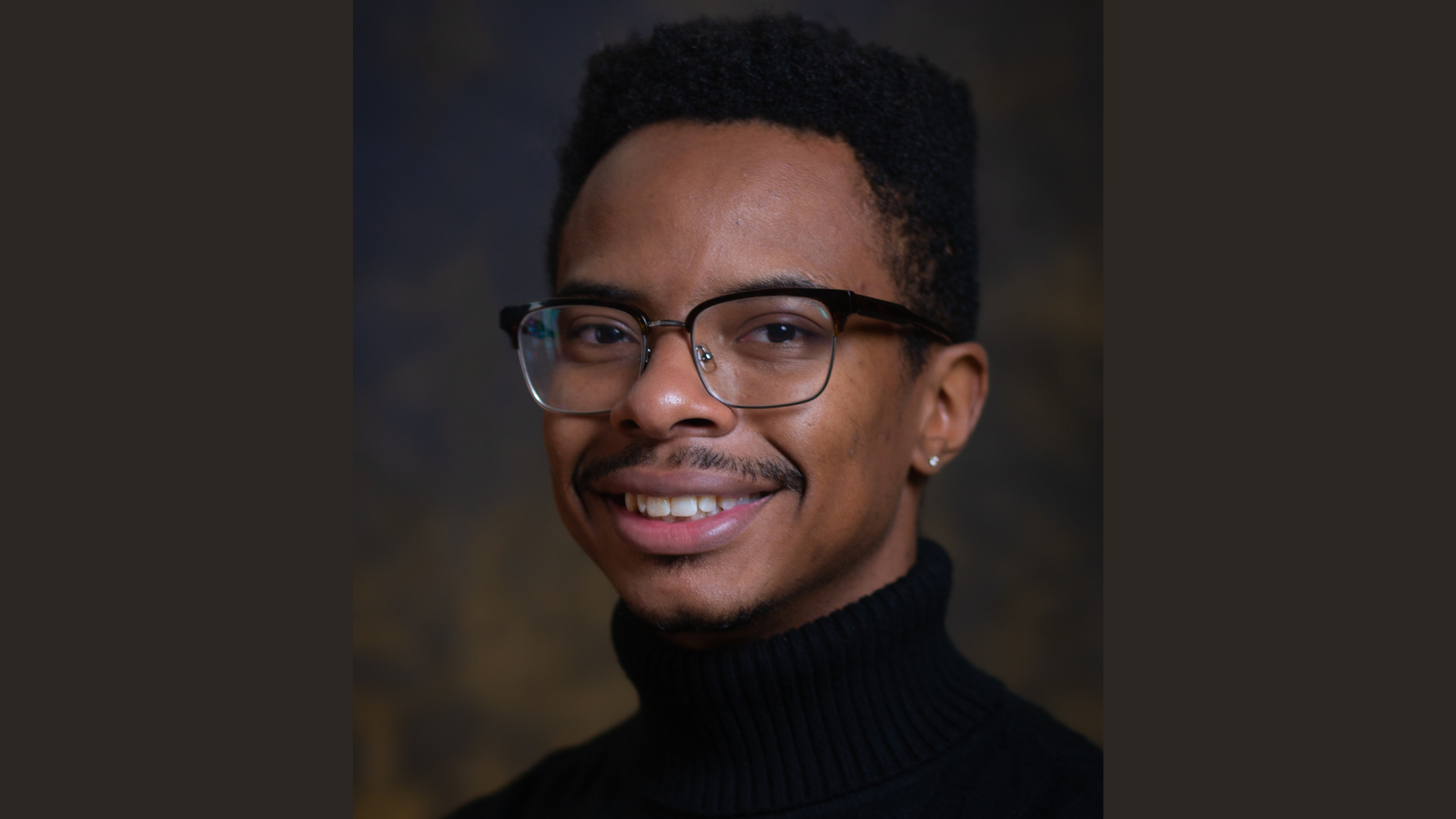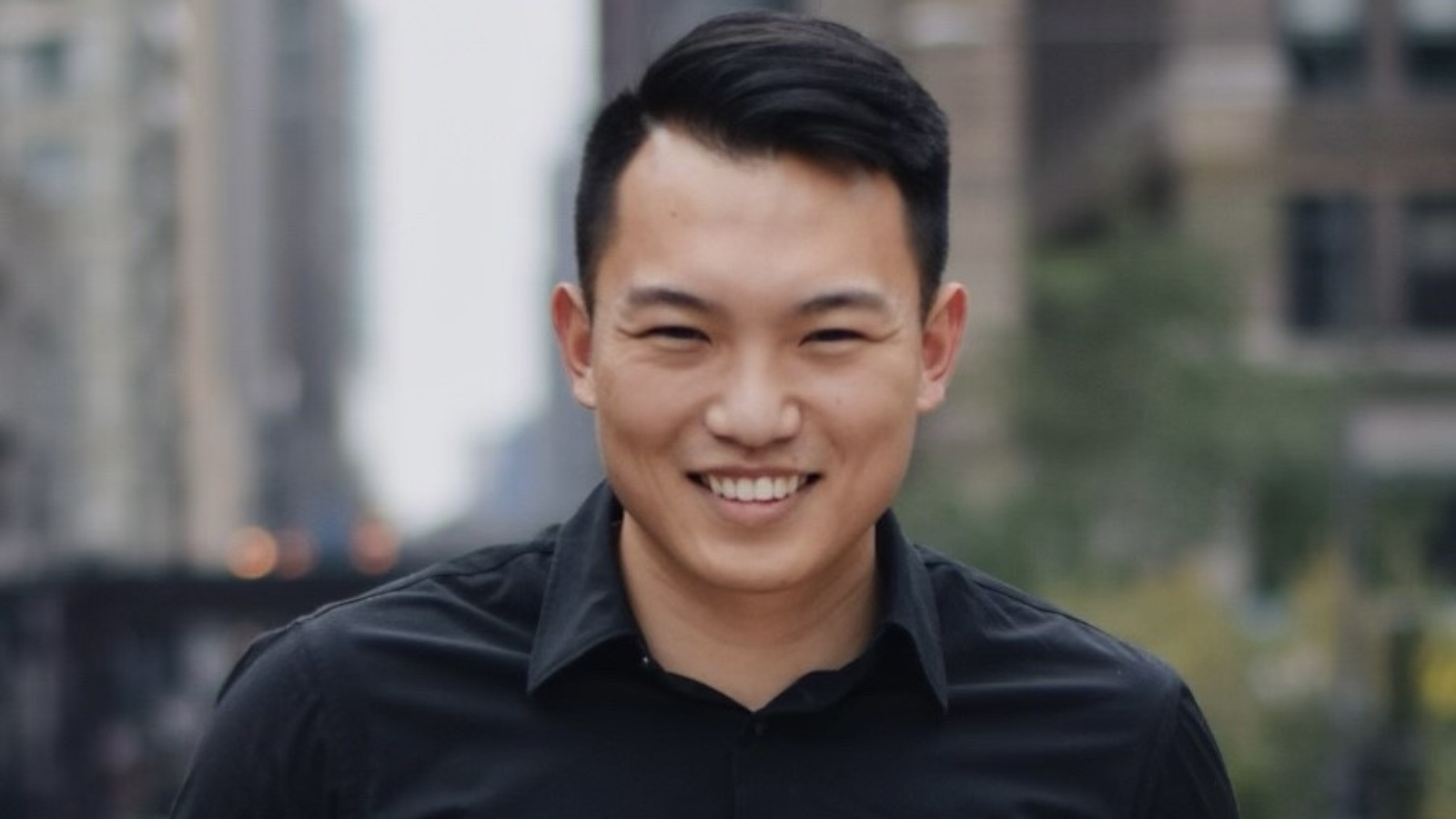Northwestern’s Third Delegation to COP28 Joins Global Partners in Fight Against Climate Change

Faculty and graduate students will engage with policymakers, researchers, industry leaders and more at the United Nations’ annual climate change conference.
As global temperatures rise, climate change is disrupting all aspects of human life. The past decade was one of the warmest on record and with it came upticks in wildfires, droughts, floods, extreme weather and other climate disasters. Left unchecked, climate change will adversely affect every ecosystem across the globe and rapidly undo the progress the world has made toward sustainable development. Universities have a crucial role to play in this fight, spurring technological, policy and societal advancements toward climate action.
For a third year, a delegation of Northwestern faculty and graduate students will be among more than 50,000 researchers, policymakers, industry leaders and more at the world’s largest annual international treaty negotiations and climate summit, the 28th Conference of Parties (COP28) to the United Nations Framework Convention on Climate Change (UNFCCC). This year hosted in Expo City, Dubai in the United Arab Emirates, COP28 will convene world leaders from nearly 200 nations to negotiate and agree on coordinated action to tackle climate change, limit greenhouse gas emissions and halt global warming. Events featuring new climate research and solutions will take place alongside their negotiations, convening leaders from across states, industries and civil society organizations to build consensus and facilitate progress toward climate action.
Northwestern's delegation will observe negotiations, share their thought leadership in panel discussions and research presentations, attend events hosted by climate leaders across the world and foster international connections. The delegation is supported by the Northwestern Roberta Buffett Institute for Global Affairs. Samantha Nissen, Northwestern Buffett's Associate Director for Strategic Initiatives, led pre-departure trainings for the delegation and is supporting delegates in navigating the conference. The Paula M. Trienens Institute for Sustainability and Energy at Northwestern will also offset the environmental footprint of the Northwestern delegation's travel through the purchase of carbon offsets, which invest in projects that reduce climate emissions elsewhere.
The leader of Northwestern's delegation to COP28, Kimberly Marion Suiseeya, a Northwestern Buffett Faculty Fellow and Associate Professor of Political Science, will speak at an official side event hosted by the U7+ Alliance of World Universities, for which Northwestern serves as Secretariat. The event, "Decarbonization Ecosystems: The Impact of University Partnerships," will highlight the University of Toronto-Northwestern Decarbonization Alliance, decarbonization guidelines developed by the Italian University Network (RUS), the Climate Leadership Network's 450+ institution decarbonization plans and the United Kingdom Universities and U7+ Climate Network leadership initiative. This side event will be available to watch live and on-demand via the UNFCCC YouTube channel.
In addition, Sera Young, co-lead of Northwestern Buffett's Making Water Insecurity Visible Global Working Group and Associate Professor of Anthropology in Northwestern's Weinberg College of Arts and Sciences, will present alongside collaborators on how water insecurity data can mobilize climate action at a special event hosted by the International Union for the Conservation of Nature at the Unite for Nature pavilion in the COP28 blue zone. Organized with the support of the Northwestern Trienens Institute, this event will reveal the first-ever picture of how water insecurity experiences covary with climate events.
The 13 members of Northwestern's delegation to COP28 span five Northwestern schools and have examined climate change through a variety of disciplinary lenses. Northwestern Buffett spoke with three delegates about their work and what they hope to accomplish at COP28.
Sapna Ramesh
Sapna Ramesh is a PhD candidate at the McCormick School of Engineering and Applied Science. A chemical and biological engineering researcher, she focuses on understanding and improving lithium-ion batteries and their role in the renewable energy industry. At COP28, she hopes to engage with diverse stakeholders responsible for shaping energy policies and learn about measures to ensure a clean and equitable energy transition.

Sapna Ramesh is a PhD candidate in chemical and biological engineering at the McCormick School of Engineering.
"I fabricate batteries in the lab to conduct my experiments. I'm aware of how the transition to clean energy, including the technologies that I research, requires many minerals including lithium, nickel, manganese and cobalt. World leaders like those at COP28 continue to negotiate minerals deals with resource-abundant nations, aiming to secure supplies of critical minerals to meet the escalating demand for electric vehicles. At COP28, I'll seek out opportunities to learn more about how critical mineral policies are being negotiated between government, industry and non-governmental organizations and how these parties are working to ensure that mining and trade of these minerals is done sustainably."
Brian E. Lovejoy, Jr.
Brian Lovejoy is a PhD candidate in the Plant Biology and Conservation Program at the Weinberg College of Arts and Sciences. As a plant biologist with seven years of experience in state and federal government, his work centers on environmental and urban conservation research. COP28 will give him the opportunity to observe how governmental representatives address the ecological issues tied to climate change and translate his research into recommendations for policymakers.

Brian Lovejoy is a PhD candidate in the Plant Biology and Conservation Program at the Weinberg College of Arts and Sciences.
"Urbanization is a highly prevalent phenomenon occurring on a global scale. National and global governmental entities have been searching for ways we might make urban environments more sustainable and less destructive to the natural environment. Cities are moving towards development using green infrastructure to meet conservation goals and human needs and to improve resilience against climate change. At COP28, I plan to attend several Technical Expert Dialogue sessions to better understand how I can translate my research into recommendations for policymakers to directly benefit city residents and gain insights into how ecological issues, especially urban ecological issues, are discussed in other parts of the world."
Max Wang
Max Wang is an MD/PhD candidate at the Feinberg School of Medicine and McCormick School of Engineering and Applied Science. An aspiring physician-scientist, he is examining the intersection between human health and climate change at COP28. Through COP28, he hopes to learn about how the biomedical community can lead efforts to combat climate change.

Max Wang is an MD/PhD candidate at the Feinberg School of Medicine and McCormick School of Engineering and Applied Science.
"Having experience in both caring for patients directly and scientific research into the development of more efficacious drugs has equipped me with a unique viewpoint on the potential hazard that climate change poses on human health. At COP28, I hope to engage in discussions about how I can leverage my research in drug discovery and drug delivery to tackle issues that are likely to arise as the climate changes, be it developing novel therapies for emerging infectious disease or prevention of chronic illnesses. Attending COP28 will also enable me to advocate for the inclusion of biomedical scientists like myself in conversations around what we can contribute to climate change mitigation efforts. There are many levels at which people in STEM fields not traditionally active in climate change conversations can interface with COP28 attendees that are not fully realized, and I hope to bridge that divide."
The delegation hopes to share their learnings from COP28 with the Northwestern community through events, photos and more.
Related: Read more about this year's Northwestern delegation to COP28.
